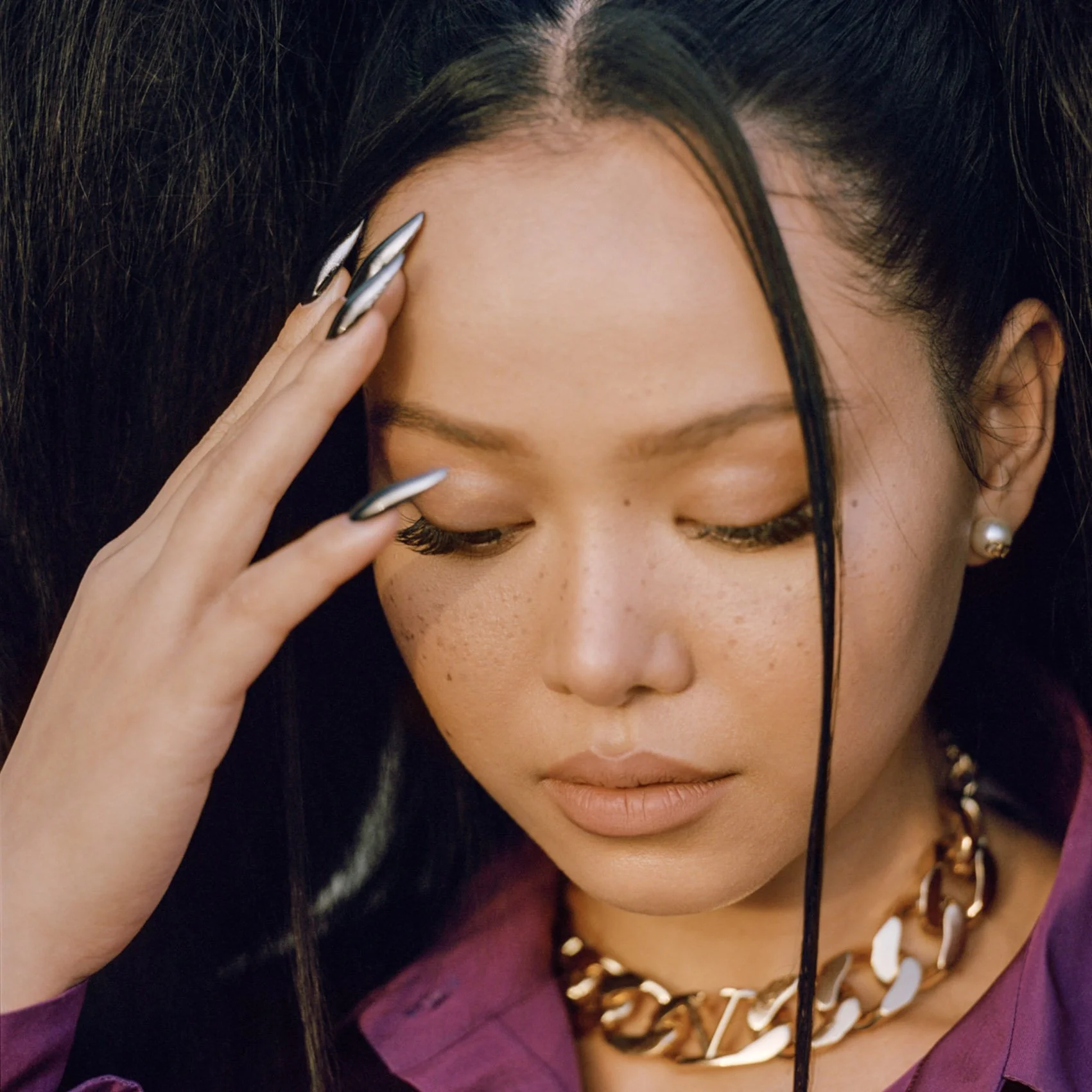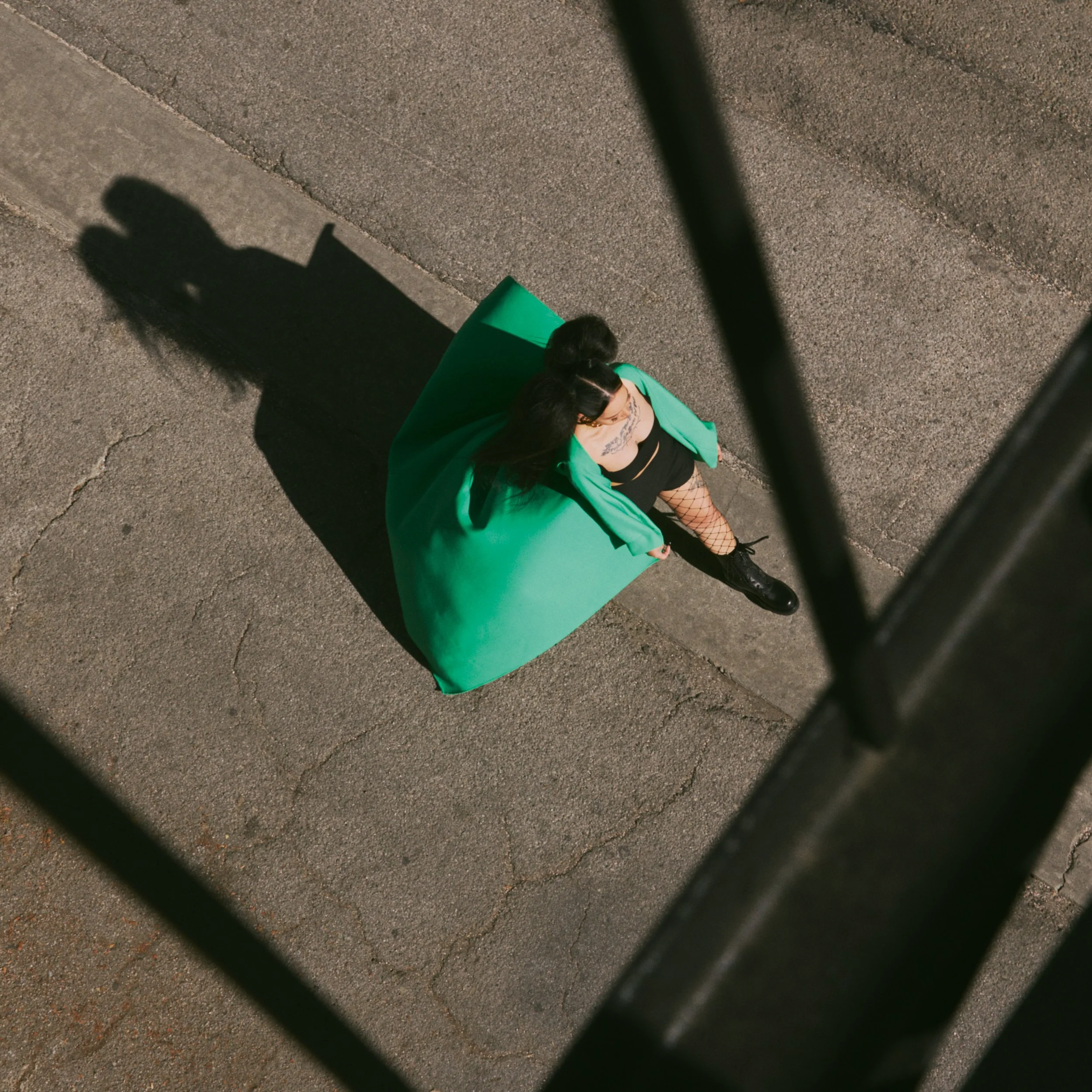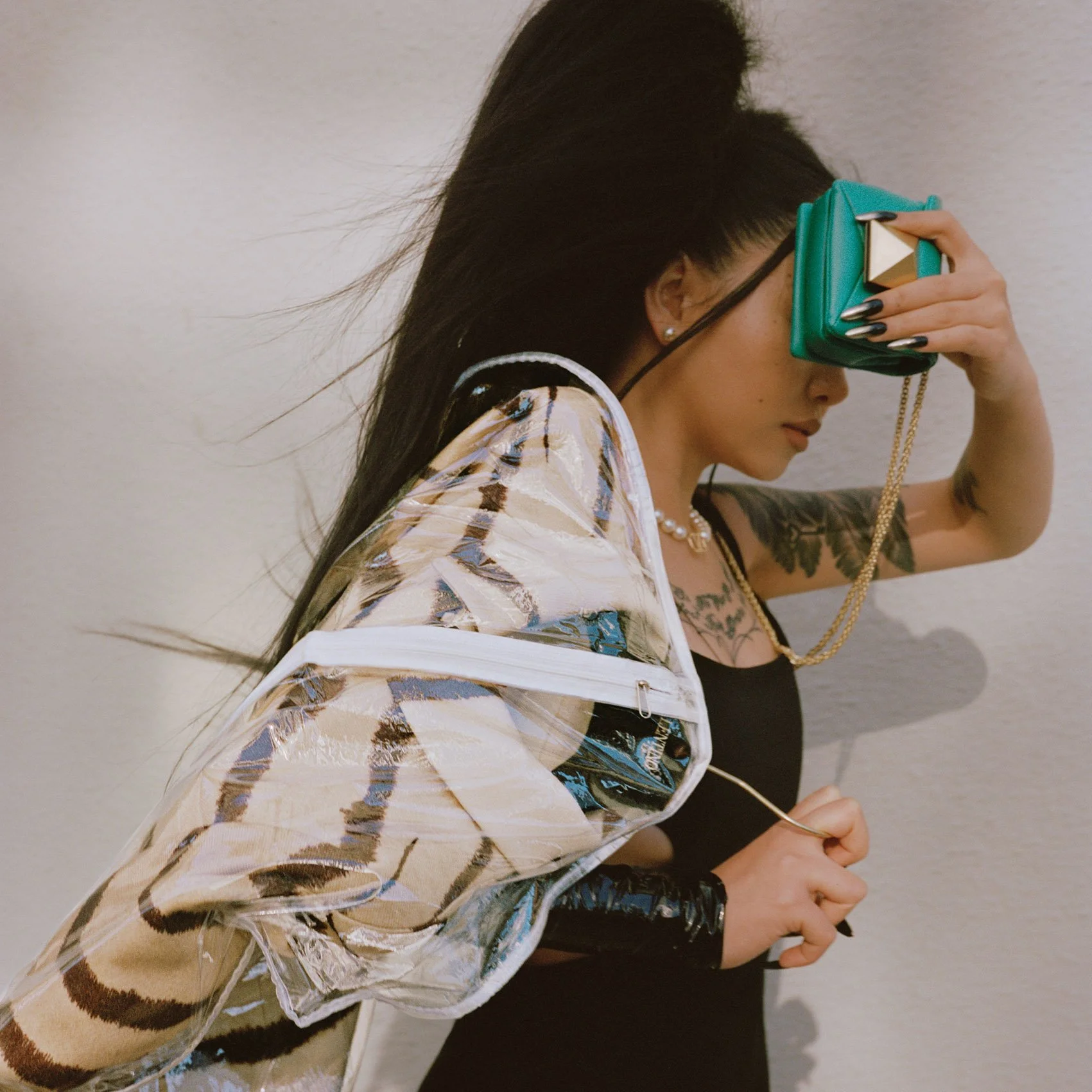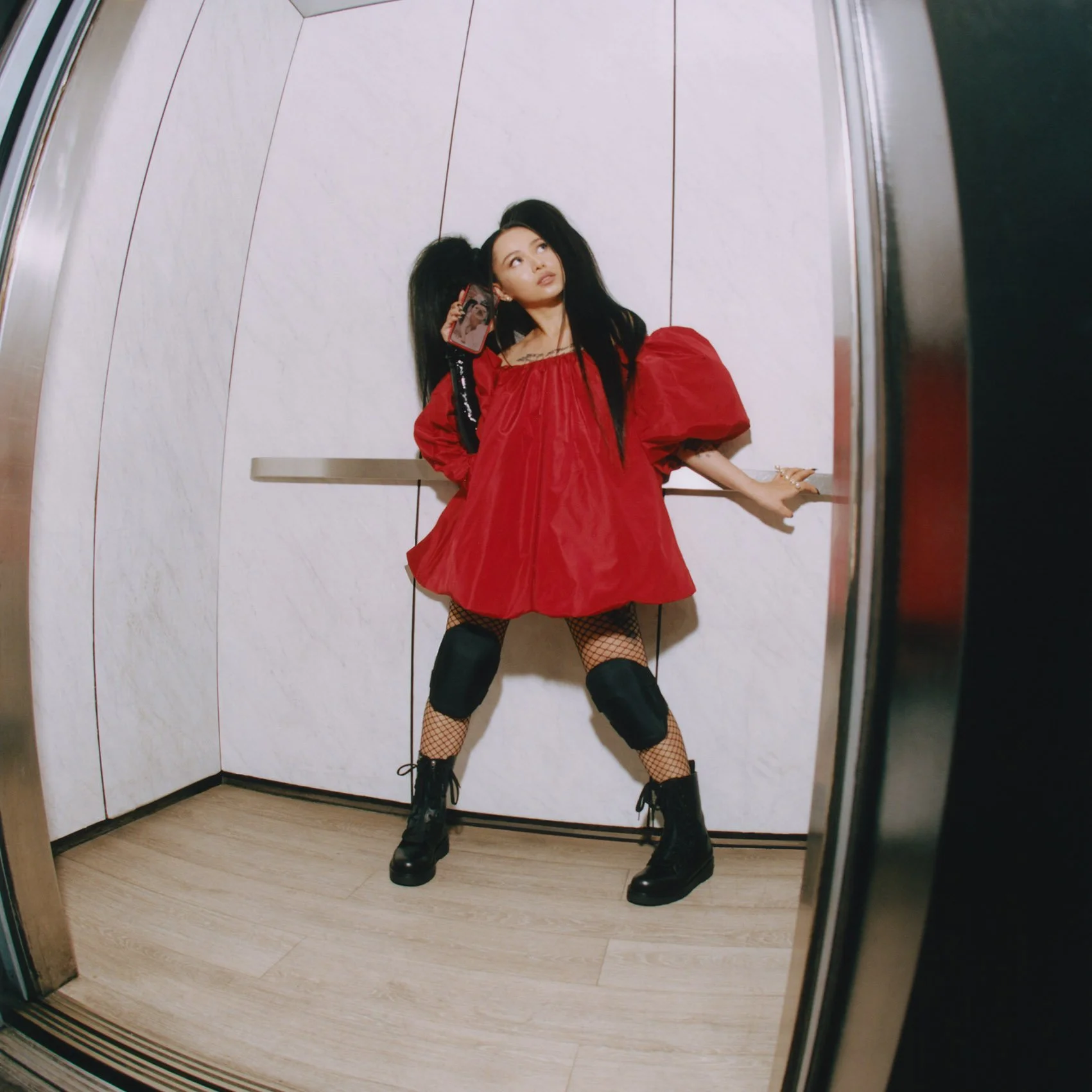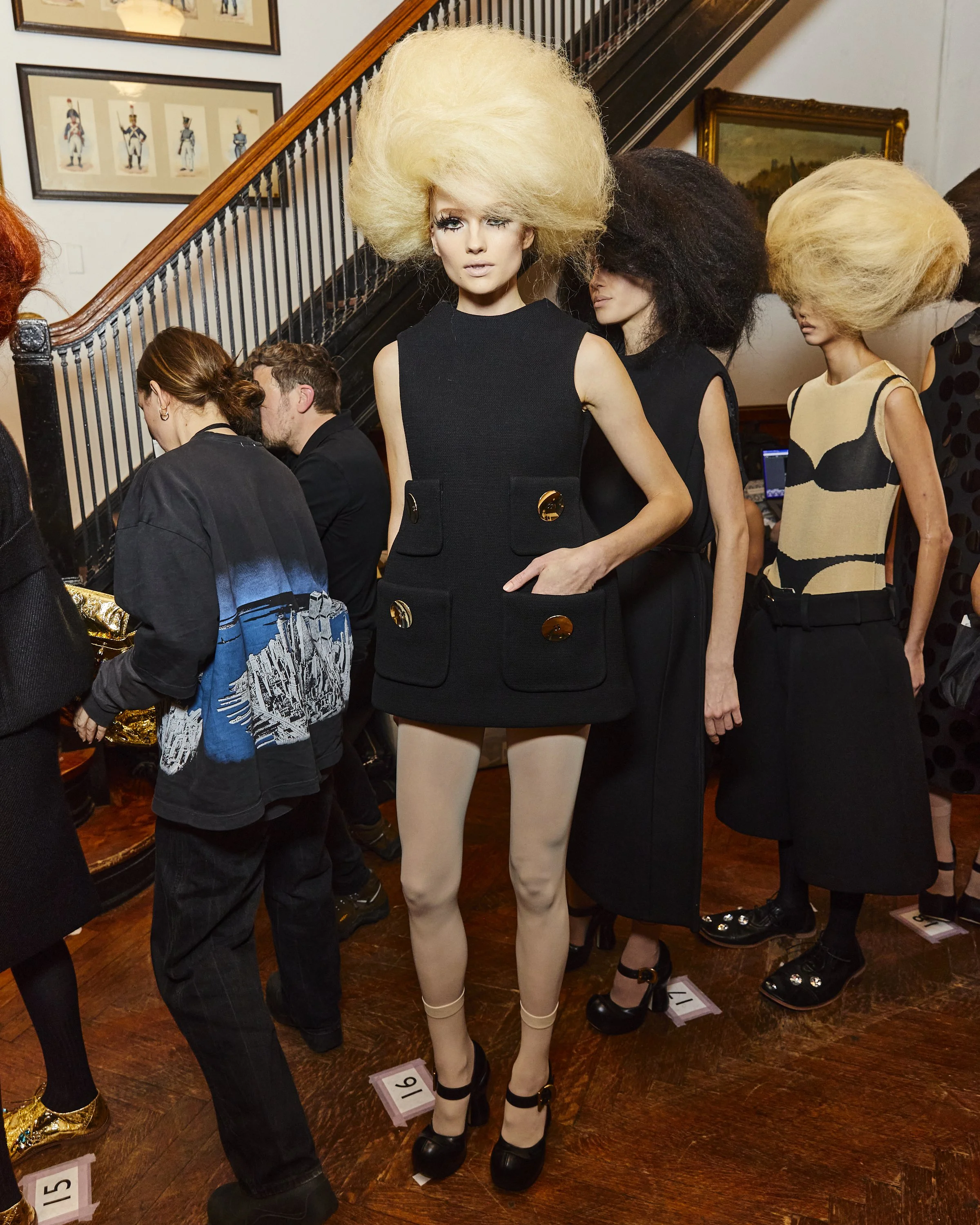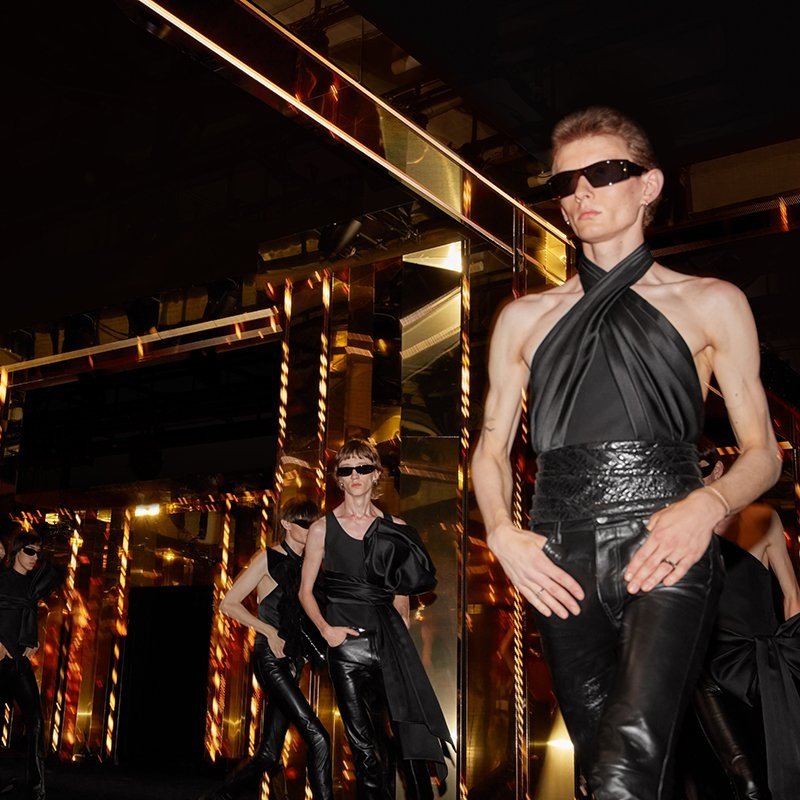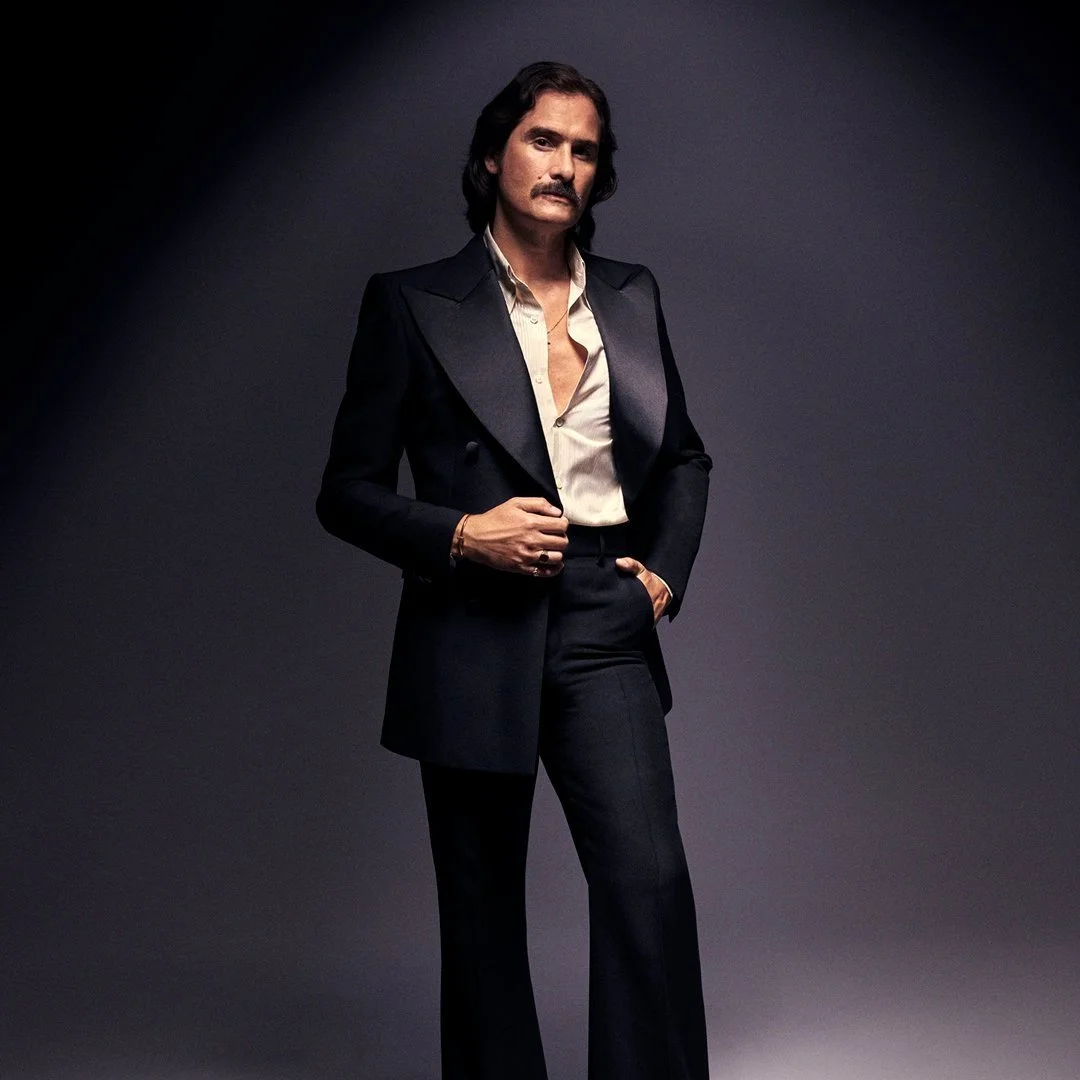Bella Poarch.
Look into Bella Poarch’s eyes. Follow them. Watch them widen. Not a blink. Wait for the drop. Then watch her hypnotically bop her head from side to side for all of 13 seconds. And finally cross go the eyes. Poarch’s Face Zoom video of her lip-syncing to Blackpool novelty rapper Millie B’s ‘Sophie Aspin Send’ track is still to this day the most liked video on TikTok – 54 million and counting. Up till that point, 24-year-old Poarch had been posting other Face Zoom videos and e-gaming content. But the potent combination of her hypnotic, cartoonish, wide-eyed face synced up to this bouncy beat on a pandemic-fuelled platform was the out-of-the-blue viral hit that suited a housebound audience seeking momentary LOLz. Call it a weird 21st-century redux back to the age of 1920s silent cinema. ‘I didn’t even know I was good at making facial expressions until I uploaded it to TikTok.’ As for the origin of the ‘M to the B’ phrase she’s miming to, ‘I didn’t even know it was a rap song at first. The only part I heard was “M to the B, M to the B” and I thought it was really cute. I incorporated the Face Zoom filter and it took me more than a hundred drafts to make it really perfect. I didn’t even realise it was blowing up until friends were sending me my video and saying it was on their TikTok discover page. I didn’t know what to expect. And then I was like, “What am I going to do now?”’
From her overnight TikTok banger, Poarch’s following grew rapidly to a staggering 85 million, as an audience clamoured for her kawaii anime facial expressions, hanging-at-home comedic skits and regular appearances from Paca, her giant stuffed alpaca. Largely without uttering a single word with her real voice, Poarch has captivated millions. That is until she filmed herself singing to her bathroom mirror – and there it was, a voice that she would then get to formally unleash with a subsequent record deal with Warner Records. Emerging from the safety net of her bedroom, Poarch now gets to speak louder than ever and say as much as she wants. Slowly but surely, she has revealed more of herself to her fans, even if it initially seemed unnatural to her. As she chatted to me over Zoom, with our very own Bryanboy on the call to reassure her as a friend, the nerves of opening up to a stranger were immediately apparent. ‘I have social anxiety and I'm trying to just learn how to talk publicly and post more talking videos of myself. Like, even now I get shaky.’
One of the most saddening things to have emerged from Poarch’s only on-camera interview is that her upbringing was inconceivably tough, which only makes her rise on social media even more remarkable. Born in the Philippines, Poarch was raised by her grandmother in the slums, and at the age of three she was adopted by a white American father, who served in the US Army, and his Filipino wife. Along with her other adoptive siblings, they lived on a farm, where Poarch and her brother were singled out for sustained mental and physical abuse, which she has since spoken about extensively in an interview with Ethan and Hila Klein on the H3 podcast in June 2021: enforced labour, calling of names and physical beatings. The numerous tattoos that grace her body are purportedly there to cover up the scars of the past. The particulars of her childhood are horrifying to hear about, so much so that it seemed crude to ask her to repeat them on this particular interview. Instead Poarch, with her softly spoken voice, is philosophical about her deeply troubled past. ‘Looking back on life, I’ve learned a lot of things. One of those things is just never give up, no matter what, even when the world is against you, even when all hope is lost. It's such an important thing. And when you've been through so much in the past, it makes you appreciate the good times too. And I try to focus on that.’
When Poarch was 14, her adoptive parents moved to the US, finally settling in Texas, but it was not long before she would find an escape route from her family situation. Following in the steps of her brother, who had joined the US Army, Poarch signed up for the US Navy at the age of 17 on a four-year contract, eager to experience a regime that was ironically far less disciplined than the one she experienced at home. Upon release from navy service and amid mental health issues that she has openly spoken about, Poarch took some much-needed time out, moving to the Maui in Hawaii, where she spent her time gaming and chilling.
And then the world came to a standstill. It wasn’t until quarantine came into effect that Poarch began to upload videos to TikTok, experimenting with lip-sync, e-gaming and cosplay content. Inspired by Hatsune Miku, an avatar character for the vocal synthesiser library Vocaloid, she would develop her own persona with two extreme high pigtails and cheeks tinged with red, as if slightly sunburnt or blushing intensely. ‘I wasn't allowed to watch anime growing up, so me and my brother would sneak into the living room to watch certain shows. Anime is so special to me – it's a part of myself that I choose to portray on TikTok.’ It’s thus easy to see how TikTok became both a form of escapism and a therapeutic way of expressing herself without the social awkwardness of doing so IRL. ‘I made silly videos and I’m being my real self. And I just felt comfortable because when you scroll through TikTok, people are being themselves. It’s not like Instagram where you see cute photos but they don’t show you day to day life. If anything TikTok has grown for the better, it’s evolving over time. And it’s given so many people a voice, and it allows them to be themselves. I feel like there’s something for everybody on the app.’
But like all social media platforms, TikTok is not immune from the ills of the internet and certain people’s innate need to hide behind their keyboards. ‘When my first viral video came out, there were a lot of hate comments, and I let it get to me. And I was crying every night. Then over time, I just realised I shouldn’t let it affect me, because I love what I’m doing and people love me for being myself.’ Perhaps one of the biggest hurdles Poarch has had to overcome is the leap from passively making cute faces at her fans on screen to meeting and interacting with them in real life. ‘I feel like my fans don't really know me as much yet. If you go through my TikTok, I don’t really talk much. I used to get really nervous before, but talking is one way to connect with people who support me. And it’s also a way to make them feel like I care about them.’
You can sense that when Poarch is talking about the gratitude towards her fans, it comes from a heartfelt place of someone who has genuinely struggled to get where she is. It’s no surprise that imposter syndrome comes up in conversation as well as the constant feeling of not belonging and being isolated by self-perceived difference. In one of the few instances where Poarch broke her no-talking video style was when she spoke up about #StopAsianHate, when a spate of violent crimes was being committed against the Asian diaspora in the US and beyond. It struck a chord with Poarch, coming to the US from the Philippines during her teens and experiencing a stark cultural difference and open discrimination. ‘English wasn’t my first language, Tagalog was. People would call me names like Lingling in school and I didn't really understand why. There was a time where I stopped eating lunch at school, because I was so embarrassed about the fact my mom would make me Filipino food.’ Every kid who’s had their ‘weird’ lunches and stinky food laughed at in a Western school setting can hard relate. Like so many who have repeatedly ignored or choked down racial slurs because of a familial pressure to stay silent and just get on with assimilating into their surroundings and following the Asian minority myth blueprint, suddenly she could be silent no more. ‘It’s just crazy what happened during the pandemic, when there were crimes towards Asians. And I felt helpless. And all I could really do was to speak up about it using my platforms and to donate. Bringing awareness was really the only thing I could do. And I wanted to fight back.’
Over time, Poarch’s Filipino identity has come to the fore on social media, whether it’s signing off videos in Tagalog or bigging up fellow Filipinos. ‘I love the Philippines. I love my culture. It’s my homeland. I just love how Filipinos always support each other, like no matter what. When I speak Tagalog on TikTok, I go through the comments and there are so many creators that are also speaking Tagalog. It’s very important to represent my culture and I can't wait to go back home.’ Poarch’s plans for a grand homecoming visit back to the Philippines have been hampered by the pandemic, but when she does, she’ll also be confronting ghosts in her past, who were responsible for holding back her voice. No doubt it will be bittersweet when that time comes. ‘My parents wouldn't allow me and my brother to talk at home – to just have no voice at all. We were only allowed to say yes or no. That’s how I grew up in the Philippines. I was a very shy kid and I was quiet and so I didn't really develop my social self. Even in the Navy, all I did was do my job; I didn’t really have to talk to people. Now that I'm a social media person, I have to talk and it’s also teaching me how to open up with people.’
If speaking wasn’t Poarch’s natural inclination then singing definitely was. The first video she ever uploaded to TikTok was of her singing, but she deleted it hastily when it hadn’t gained any views. The fact is, she can REALLY sing. It’s a passion nurtured from when she was just seven years old, when she would sneak out to enter singing competitions. Even as she faced punishment from her parents every time they found out, it’s testament to her desire to sing that she still ended up winning 36 medals. Before releasing her first single, she was more than aware of the clichéd pitfalls of a TikTok-er becoming a music artist. ‘It was a lot of pressure. It has to be GOOD music, because if it’s not, people would just roast me. My music means a lot to me and it’s something I’ve worked on my whole life. I had to make it perfect. I think I did my best.’ That’s Poarch being humble – try releasing a song and having the most views ever in the history of artist debuts on YouTube. ‘Build a Bitch’, Poarch’s first single, was an instant smash and it’s in the lyrics where you’ll find Poarch at her sharpest, probing at lofty beauty standards imposed by others:
‘This ain’t build a bitch (a bitch). You don't get to pick and choose.’
It’s an insanely catchy ‘haters gonna hate’ anthem that is fit for these times, and one that sends out a strong message about Poarch’s dark pop ambitions. ‘It can uplift other people who are going through what I’ve been through. I want to empower them and I want to let them know they’re not alone. That’s actually me singing my pain.’ She’s taking the time to explore her sound and she will be stretching out her vocal range. ‘Making music and recording until like 2 or 3 am is where I’m most comfortable. Sometimes I’m shocked when I unlock a tone in my voice. A lot of my fans have been like, “Why don’t you show more of your vocals?” For the next few songs, I’ll be stretching. Maybe I’ll sing opera!’
You can’t build a bitch but you can build up strength and adaptability. And that doesn’t necessarily mean Poarch is prolifically doing everything. But she is exploring new territory that adds more to her range – and not just vocally. For instance, she went to her first fashion week in Paris back in September 2021, where she had her Emily in Paris moment. ‘Fashion to me, like music, is another way I can present and express myself. I just love watching the shows; to pay respect to the designers and see the clothes on the runway is super inspiring.’
By the end of our conversation, Poarch has come into her own. Opened up. Laughed openly. We largely expect our celebrities to be open, to say and stand for something. To say anything and then ultimately grandstand. To give us that quotable one-liner. In the 2012 psychology book Quiet: The Power of Introverts in a World That Can't Stop Talking, author Susan Cain talks about how Western culture has long praised and rewarded the ‘extrovert ideal’ at the expense of introverts, who may not be as assertive in their ideas. The power of Poarch is perhaps that she leaves you wondering what’s behind that anime gaze. Comments on her TikTok have consistently cajoled her to talk. Poarch will talk when she wants to. She’ll speak up where necessary. She’ll grow louder, not in volume but in substance. The power of the quiet is a force to be reckoned with. ‘I feel like everybody grows and everybody changes. And I want to become a better version of myself as I experience new things. I just want to grow. And as I grow, I just want to be better.’
